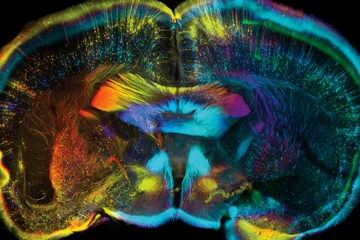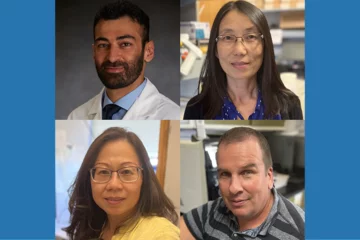Post-traumatic stress disorder (PTSD) can develop after experiencing or witnessing a life-threatening event including serious accidents, physical or sexual assault, or combat. While there are both psychotherapy and medication treatments for PTSD, many people do not tolerate or benefit sufficiently from those standard treatments. Life with treatment-resistant PTSD (TR-PTSD) can be overwhelming and debilitating.
If you are suffering from severe PTSD that does not improve with medications or therapy, our experimental study involving responsive deep brain neurostimulation (RNS) of the amygdala may be an option to consider. RNS detects abnormal brain activity anduses electrical stimulation to modify that, with the goal of reducing unwanted fight or flight responses. RNS is an established therapy for treatment-resistant epilepsy In psychiatry it is also being studied for treatment-resistant depression.
UCLA and the Department of Veterans Affairs Greater Los Angeles Healthcare System are partners for the research study. It is funded by the National Institute of Health. Our goals are to evaluate the safety of RNS and see if we can improve symptoms andquality of life of individuals suffering from TR-PTSD. We also hope to learn more about brain circuitry changes that underlie TR-PTSD. Because this is a research study, we cannot guarantee improvement. You will receive compensation for time and travel for study visits.
The study lasts 4 years. Study visits are one or twice monthly for the first year and then every 3 months for three years. Visits may be in-person, by telephone and/or video.
You should live within a few hours of UCLA during the first year.
If you are interested in this study or would like more information call our UCLA research office at 310-794-7517 or email suthanalab@mednet.ucla.edu. Calling about the study does not make any commitment. We welcome your questions.




